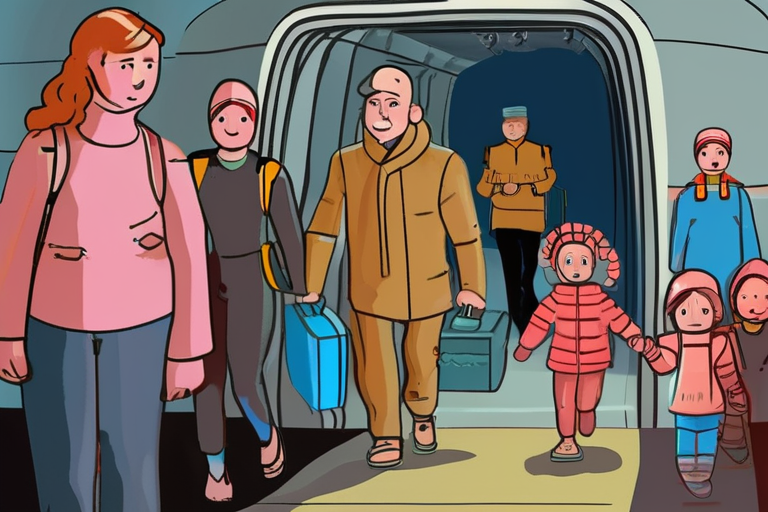Russian Woman and Children Who Lived in Indian Cave Return Home
BENGALURU, India (Sept 28) - Nina Kutina, a 40-year-old Russian woman who made international headlines after being found living in a cave with her two young daughters in the southern state of Karnataka, has returned to Russia along with her children and minor son from another relationship.
Kutina and her daughters, aged six and five, were rescued by policemen on a routine patrol in July. They had been living in the cave without valid documents to stay in India. The woman was subsequently sent to a foreigners' detention centre along with her daughters.
According to an official at the Foreigners' Regional Registration Office (FRRO), who wished to remain anonymous, Kutina and her children left for Russia on September 28. "The high court had ordered the federal government to issue documents to Ms Kutina and her daughters to return home," the official said. "We have complied with the order."
Kutina's minor son from another relationship was also found living in Goa state, and he accompanied his mother and siblings back to Russia.
The case drew attention globally due to its unusual circumstances. Dror Shlomo Goldstein, an Israeli businessman who lives in Goa, had filed a petition in the Karnataka high court on behalf of Kutina's minor son, claiming that he was the boy's guardian. The court had been hearing the petition since July.
"This is a welcome development for all parties involved," said Goldstein in a statement to the BBC. "I'm glad that Ms Kutina and her children are finally returning home."
The incident has sparked debate about immigration policies and the treatment of foreign nationals in India. Some have questioned why Kutina was not deported earlier, while others have criticized the government for taking too long to issue documents.
Kutina's case is a rare example of a foreign national living in isolation with their children in India. While it is not uncommon for people to live off the grid in rural areas, cases involving minors are relatively rare.
The return of Kutina and her children marks a new chapter in this unusual saga. As they settle back into life in Russia, questions remain about how such incidents can be prevented in the future.
Background:
Kutina's case drew international attention due to its unusual circumstances. The woman had been living in the cave with her daughters for an unknown period of time before being discovered by police. Her minor son from another relationship was found living in Goa state, sparking a custody battle that eventually led to the court ordering his return to Russia.
Additional Perspectives:
The incident has sparked debate about immigration policies and the treatment of foreign nationals in India. Some have questioned why Kutina was not deported earlier, while others have criticized the government for taking too long to issue documents.
"This is a wake-up call for the government to review its immigration policies," said Dr. Suresh Kumar, an expert on international law at the University of Delhi. "We need to ensure that foreign nationals are treated fairly and humanely."
Current Status:
Kutina and her children have returned to Russia, marking a new chapter in this unusual saga. As they settle back into life, questions remain about how such incidents can be prevented in the future.
The case has also raised concerns about the welfare of Kutina's minor son, who was found living in Goa state. His return to Russia with his mother and siblings is seen as a positive development by all parties involved.
As for Kutina herself, she remains tight-lipped about her decision to live in the cave with her children. In an interview with the BBC earlier this month, she said that she had chosen to live off the grid due to personal reasons.
"I just wanted to be away from the world," she said. "I didn't want any distractions or complications."
Kutina's case is a rare example of a foreign national living in isolation with their children in India. While it is not uncommon for people to live off the grid in rural areas, cases involving minors are relatively rare.
The return of Kutina and her children marks a new chapter in this unusual saga. As they settle back into life in Russia, questions remain about how such incidents can be prevented in the future.
*Reporting by Bbc.*



 Hoppi
Hoppi

 Hoppi
Hoppi

 Hoppi
Hoppi

 Hoppi
Hoppi

 Hoppi
Hoppi

 Hoppi
Hoppi











